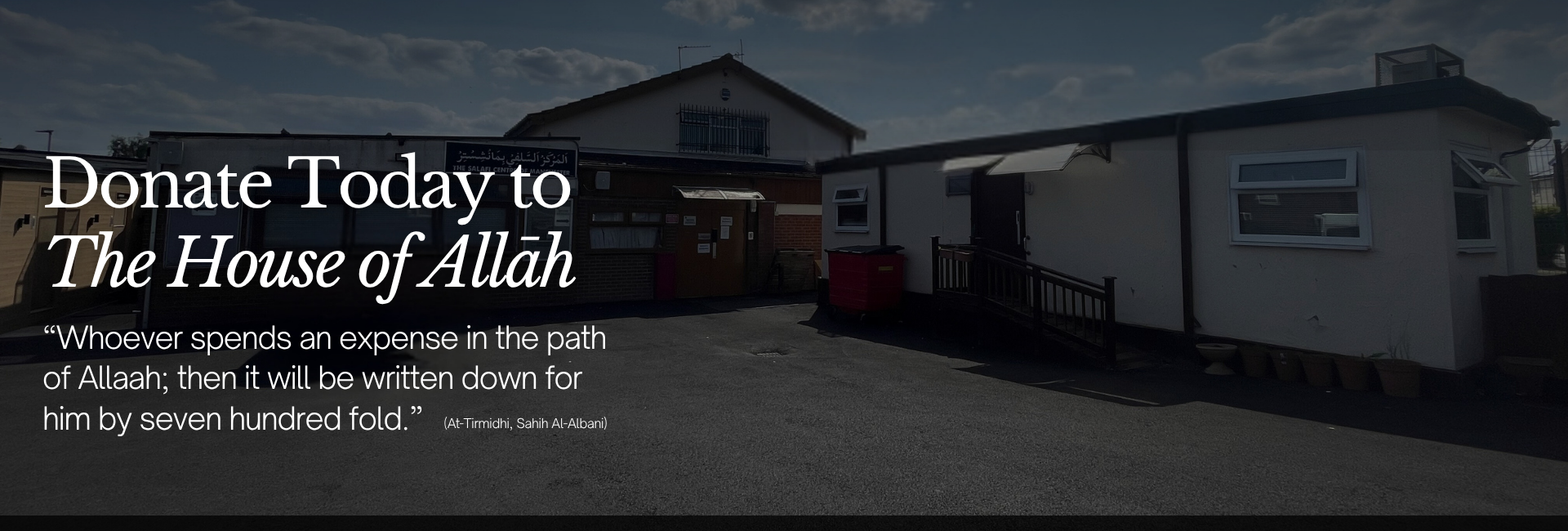The Humble Beginnings of The Masjid That Established Tawheed, Iman, The Sunnah, and Sound Rectification
In The Name of Allah, The Most Merciful, The Bestower of Mercy.
The Masjid with a Dripping Ceiling and Occasionally Scorching Floor – A Reminder for Our Communities during Masjid Construction or Renovation
Anas Bin Malik [may Allah be pleased with him] narrated: “We used to pray with the Prophet [peace and blessings of Allah be upon him] in scorching heat, and if one of us could not put his face on the earth (because of the heat), he would spread his clothes and prostrate over them”. [1]
Imam Muhammad Ibn Saalih Al-Uthaymeen [may Allah have mercy upon him] mentioned that according to some scholars, this happened before the order to delay prayer in extreme heat. The Prophet [peace and blessings of Allah be upon him] observed that it was difficult for people to perform Sujood on the hot ground, so he instructed them to delay the prayer until the weather was cooler. Some scholars explained that “in scorching heat” refers to a day that is very hot and the stone or the thing with which (the floor) of the Masjid is covered becomes too hot to prostrate on, even if the weather itself is not intensely hot. This is an explanation from another angle. [2]
Abu Salamah [may Allah be pleased with him] narrated: I asked Abu Sa’eed [may Allah be pleased with him], and he was a friend of mine, (about the Night of Qadr) and he said, “We practiced I’tikaf in the middle third of the month of Ramadan with the Prophet [peace and blessings of Allah be upon him]. In the morning of the 20th of Ramadan, the Prophet came and addressed us and said, ‘I was informed of (the date of the Night of Qadr) but I was caused to forget it; so search for it in the odd nights of the last ten nights of the month of Ramadan. (In the dream) I saw myself prostrating in mud and water (as a sign). So, whoever was in I’tikaf with me should return to it with me (for another 10 days)’, and we returned. At that time there was no sign of clouds in the sky but suddenly a cloud came and it rained till rainwater started leaking through the roof of the Masjid which was made of date palm leaf stalks. Then the prayer was established and I saw Allah’s Messenger prostrating in mud and water and I saw the traces of mud on his forehead.” [3]
We have been blessed with comfortable Salafi Masaajid, therefore, it is important to remember the humble beginnings of the first Masjid, where the floor would become scorching hot and the roof would leak during rain. Despite these challenges, it was from this Masjid that sermons, teachings, and admonitions began, spreading the knowledge of Tawheed, Imaan, Sunnah, and sound rectification. We should be grateful for the blessings Allah has bestowed upon us – Masaajid where we hardly feel the heat in summer or the cold in winter.
An Ayah from The Qur’an Explaining The Three Foundations of Gratitude
Allah [The Most High] says:
لِتَسْتَوُوا عَلَىٰ ظُهُورِهِ ثُمَّ تَذْكُرُوا نِعْمَةَ رَبِّكُمْ إِذَا اسْتَوَيْتُمْ عَلَيْهِ وَتَقُولُوا سُبْحَانَ الَّذِي سَخَّرَ لَنَا هَٰذَا وَمَا كُنَّا لَهُ مُقْرِنِينَ
وَإِنَّا إِلَىٰ رَبِّنَا لَمُنقَلِبُونَ
In order that you may mount on their backs, and then may remember the Favour of your Lord when you mount thereon, and say: “Glory to Him Who has subjected this to us, and we could never have it (by our efforts). And verily, to Our Lord, we indeed are to return!” [43/13-14]
Imam As-Sadi [may Allah have mercy upon him] said, “Mentioned in this Ayah are the three pillars of gratitude and they are: acknowledgment of Allah’s blessings, proclaiming and speaking about Allah’s blessings, submitting to Allah and utilise these blessings to carry out acts of worship for the sake of Allah (alone).
Regarding Allah’s saying: [ثُمَّ تَذْكُرُوا نِعْمَةَ رَبِّكُمْ إِذَا اسْتَوَيْتُمْ – And then may remember the favour of your Lord when you mount thereon], this is a specific mention of the (favour) at the time in which the person enjoys those favours because blessings intoxicate many amongst the creation, makes them heedless, evil and ungrateful; therefore, this state in which Allah commanded (a person to remember Him for His Favours) is a medication for this destructive ailment. When the person recalls that he is surrounded by Allah’s blessings and that nothing is from oneself, but rather blessings are (from Allah) – its means are facilitated and its obtainment made easy (by Allah), one submits to Allah, humbles himself, thanks and praises Allah. And by way of this, he is given continuous blessings.
And regarding the statement of Allah: [وَإِنَّا إِلَىٰ رَبِّنَا لَمُنقَلِبُونَ – And verily, to Our Lord, we indeed are to return], this is an acknowledgment of recompense and make preparations for it. The objective behind these favours is that they are an aid by way of which the slave (seeks) to fulfill that which Allah has commanded him (i.e. acts of worship and obedience etc). [4]
Shaikh Abdus Salaam Burgess [may Allaah have mercy upon him] stated: “Being blessed by Allah to adhere to the pure Sunnah and walk on its righteous path is a tremendous favor that necessitates expressing gratitude and constantly remembering Allaah. This is because practicing the Sunnah in today’s era is a significant matter and also a strange thing”. [5]
We ask Allah:
اللهم أعني على ذكرك وشكرك، وحسن عبادتك
O Allah! Help me remember You, grateful to You and worship You in the best manner
[1] Saheeh al-Bukhari. Number 1208
[2] Paraphrased: https://www.alathar.net/home/esound/index.php?op=codevi&coid=43481
[3] Sahih al-Bukhari 2016
[4] An Excerpt from Fataawa Sa’diyyah page: 61
[5] “Tasneefun Naas”. page 20




